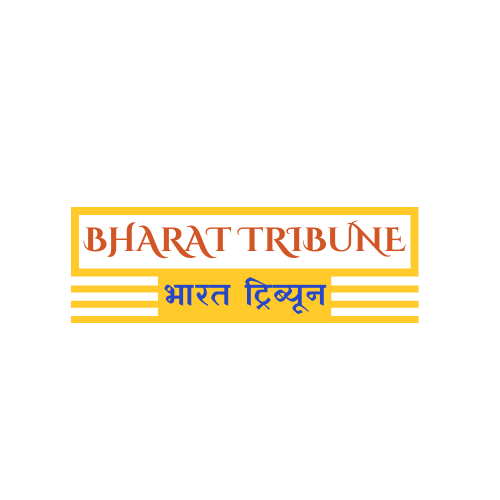The Future of Assessment: Moving Beyond Standardized Tests
For decades, standardized tests have been a cornerstone of the education system, used to measure student achievement, evaluate school performance, and make critical decisions about college admissions and career readiness. However, as the world evolves, so too must our methods of assessment. The future of assessment lies in moving beyond these traditional metrics to embrace more holistic, personalized, and practical approaches that better reflect students' diverse skills and abilities.
The Limitations of Standardized Tests
Standardized tests have several inherent limitations that make them increasingly inadequate for the demands of the 21st century:
- Narrow Scope: These tests often focus on a limited range of subjects and skills, primarily rote memorization and recall, while neglecting crucial competencies such as critical thinking, creativity, collaboration, and problem-solving.
- Lack of Personalization: Standardized tests treat all students the same, failing to account for individual learning styles, cultural backgrounds, and prior knowledge. This one-size-fits-all approach can disadvantage students from diverse backgrounds and those with learning differences.
- Test Anxiety and Stress: The high-stakes nature of standardized tests can induce significant anxiety and stress in students, negatively impacting their performance and overall well-being. This pressure can stifle creativity and discourage risk-taking.
- Teaching to the Test: Standardized tests often incentivize teachers to focus on test preparation rather than fostering deeper understanding and inquiry-based learning. This can lead to a narrow curriculum that prioritizes test scores over genuine learning.
- Limited Predictive Validity: While standardized tests can provide some indication of academic performance, they have limited predictive validity when it comes to success in college, careers, and life. They fail to capture essential qualities such as resilience, adaptability, and emotional intelligence.
Emerging Trends in Assessment
To address the limitations of standardized tests, educators and policymakers are exploring a range of innovative assessment methods that offer a more comprehensive and meaningful evaluation of student learning:
- Performance-Based Assessments: These assessments require students to apply their knowledge and skills to solve real-world problems or create authentic products. Examples include research projects, presentations, portfolios, and exhibitions.
- Formative Assessments: Formative assessments are ongoing, low-stakes evaluations designed to provide students with feedback and guidance to improve their learning. Examples include quizzes, class discussions, peer reviews, and self-assessments.
- Personalized Learning: Personalized learning tailors instruction and assessment to meet the unique needs and interests of each student. This approach uses data and technology to track student progress and provide individualized feedback and support.
- Competency-Based Education: Competency-based education focuses on measuring students' mastery of specific skills and knowledge rather than seat time or grades. Students progress at their own pace and demonstrate their competence through various assessments.
- Technology-Enhanced Assessments: Technology can enhance assessment by providing interactive simulations, adaptive testing, and automated feedback. These tools can make assessments more engaging, efficient, and personalized.
Benefits of Alternative Assessment Methods
Moving beyond standardized tests offers several potential benefits for students, educators, and the education system as a whole:
- More Accurate and Comprehensive Evaluation: Alternative assessment methods provide a more holistic and nuanced picture of student learning, capturing a wider range of skills and abilities.
- Increased Student Engagement and Motivation: Performance-based and personalized assessments can make learning more relevant, engaging, and meaningful for students, leading to increased motivation and achievement.
- Enhanced Teacher Professional Development: Implementing alternative assessment methods requires teachers to develop new skills and knowledge, such as designing authentic tasks, providing effective feedback, and using data to inform instruction.
- Improved College and Career Readiness: Assessments that focus on critical thinking, problem-solving, and collaboration can better prepare students for the challenges of college and the demands of the modern workforce.
- Greater Equity and Access: Alternative assessment methods can reduce bias and promote equity by providing students with multiple pathways to demonstrate their learning and accommodating diverse learning styles and cultural backgrounds.
Challenges and Considerations
While the future of assessment holds great promise, there are also several challenges and considerations to keep in mind:
- Reliability and Validity: Ensuring that alternative assessment methods are reliable and valid requires careful planning, implementation, and evaluation.
- Scalability and Feasibility: Implementing alternative assessment methods on a large scale can be complex and resource-intensive.
- Teacher Training and Support: Teachers need adequate training and support to design, implement, and evaluate alternative assessment methods effectively.
- Public Acceptance and Accountability: Gaining public acceptance and ensuring accountability for alternative assessment methods requires clear communication and transparency.
- Data Management and Analysis: Collecting, managing, and analyzing data from alternative assessment methods can be challenging, especially in large school districts.
The future of assessment lies in embracing a more comprehensive, personalized, and practical approach that moves beyond the limitations of standardized tests. By adopting innovative assessment methods, educators can better equip students with the skills and knowledge they need to succeed in college, careers, and life. While there are challenges to overcome, the potential benefits of alternative assessment methods make it a worthwhile pursuit.




